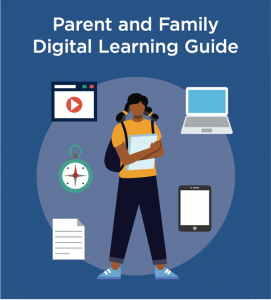How Can Teachers Nurture Meaningful Student Agency?
 The term “student agency” continues to be at the forefront of the educational discourse around the world. By encouraging children to have more control over their learning, educators hope students will leave our classrooms and schools with a range of skills that will support them in being lifelong learners, engaged humanitarians and empathetic people.
The term “student agency” continues to be at the forefront of the educational discourse around the world. By encouraging children to have more control over their learning, educators hope students will leave our classrooms and schools with a range of skills that will support them in being lifelong learners, engaged humanitarians and empathetic people.
As of late, this has become increasingly apparent as teachers and students have pivoted to more distance learning experiences. Read more ›


 In elementary school, it’s common to have social and emotional lessons built into the curriculum, and the research shows that they have a strong, positive impact on student outcomes and school climate. But a 2019
In elementary school, it’s common to have social and emotional lessons built into the curriculum, and the research shows that they have a strong, positive impact on student outcomes and school climate. But a 2019 
 Dyslexia interventions can be replicated virtually
Dyslexia interventions can be replicated virtually
 The growing acknowledgement of racial injustice and systemic racism is leading school districts, schools and individual teachers across the nation to examine and, in some cases, change their policies and approaches. Others, however, don’t know where to start or worry their actions will have no impact.
The growing acknowledgement of racial injustice and systemic racism is leading school districts, schools and individual teachers across the nation to examine and, in some cases, change their policies and approaches. Others, however, don’t know where to start or worry their actions will have no impact. 
 Online professional learning resources are designed to be engaging and practical across a variety of contexts and roles. You deserve a differentiated experience just as much as your students do.
Online professional learning resources are designed to be engaging and practical across a variety of contexts and roles. You deserve a differentiated experience just as much as your students do. 
 The U.S. Department of Education has collected and published best practices and successful strategies employed by schools all over the country as they return America’s students to learning.
The U.S. Department of Education has collected and published best practices and successful strategies employed by schools all over the country as they return America’s students to learning.
 The U.S. Department of Education created a free
The U.S. Department of Education created a free 
 Distance learning is challenging for many learners, but can be even more challenging for students with learning, attention, or social-emotional needs.
Distance learning is challenging for many learners, but can be even more challenging for students with learning, attention, or social-emotional needs.
 In a “hybrid” classroom model, some students attend remotely while others attend in-person. Hybrids come in all shapes and sizes — from weekly rotations to alternating half days to a more synchronous or “concurrent” model in which all students are “in class” at the same time, just in two different places.
In a “hybrid” classroom model, some students attend remotely while others attend in-person. Hybrids come in all shapes and sizes — from weekly rotations to alternating half days to a more synchronous or “concurrent” model in which all students are “in class” at the same time, just in two different places. 
 Children each learn and develop at their own pace, and reading is no different from other skill building. It’s common for kids to find reading challenging at one point or another. But if learning to read becomes an ongoing struggle that leaves a child falling behind his peers, it’s possible that he has a
Children each learn and develop at their own pace, and reading is no different from other skill building. It’s common for kids to find reading challenging at one point or another. But if learning to read becomes an ongoing struggle that leaves a child falling behind his peers, it’s possible that he has a 

